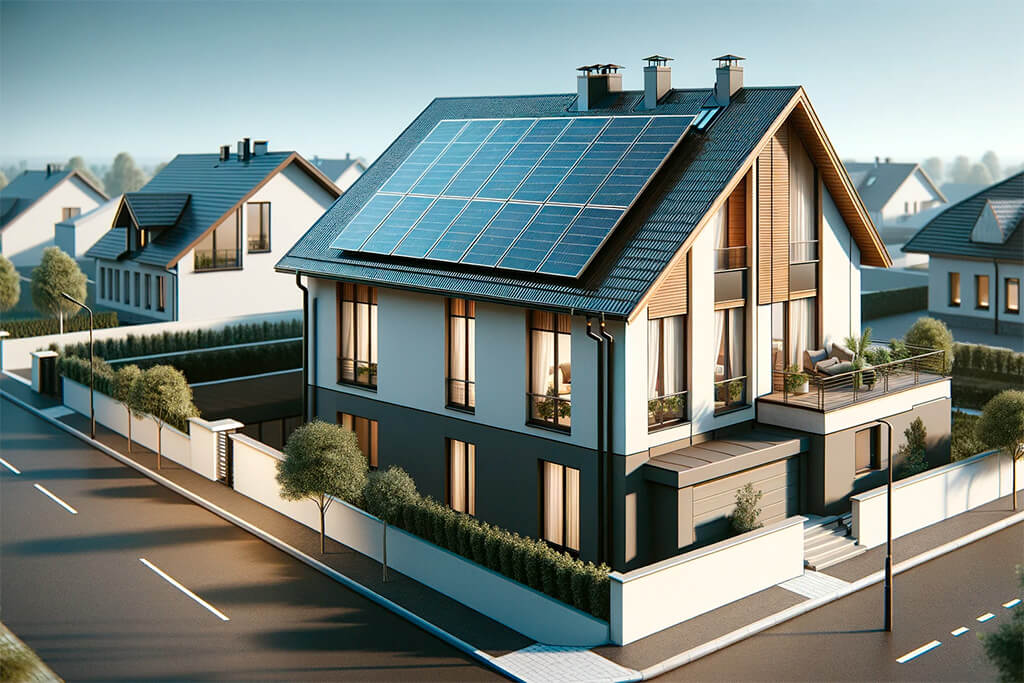In the bustling world of home improvement and construction, the shift towards solar energy has become a notable trend among both homeowners eager to slash their utility bills and forward-thinking contractors looking to broaden their repertoire. This surge in popularity, however, has been shadowed by a proliferation of myths and scams, creating a minefield for those considering the leap to solar. Drawing on a wealth of experience and a keen eye for the practical realities of construction, let’s demystify these misconceptions and offer clear, actionable advice for navigating the solar landscape.

The Reality of Solar Energy: Separating Fact from Fiction About Scams
Understanding Solar Panels
The mechanics of solar panels are rooted in simplicity yet underpinned by advanced technology. These devices capture sunlight, converting it into electricity through a process involving silicon cells and a phenomenon known as the photovoltaic effect. The result is the generation of direct current (DC) electricity, subsequently transformed into alternating current (AC) that powers our homes. It’s a seamless process that harnesses the boundless energy of the sun.
The Broader Benefits
Beyond the obvious perk of reducing electricity bills, solar panels contribute significantly to environmental conservation by diminishing our dependence on fossil fuels. They also potentially boost property values and unlock access to a variety of financial incentives designed to make solar adoption more appealing.
Common Solar Panel Myths Debunked
- Myth 1: Ineffectiveness in Adverse Weather
Contrary to popular belief, solar panels maintain functionality across a range of weather conditions. While optimal performance is achieved under direct sunlight, cooler climates can actually enhance efficiency, and diffuse light on overcast days still generates power. This debunks the myth that solar energy is only viable in perpetually sunny locales. - Myth 2: Prohibitive Costs
The perception of solar technology as an expensive luxury is outdated. Thanks to technological advancements and policy support, the cost of solar installations has dropped significantly, making it an increasingly feasible option for the average homeowner. The investment pays dividends not only in reduced energy expenses but also in increasing the home’s market appeal. - Myth 3: High Maintenance
Another common misconception is the belief that solar panels necessitate frequent upkeep. In reality, solar panels are remarkably low-maintenance, requiring little beyond periodic cleaning to ensure optimal performance. With warranties often extending over several decades, the durability and reliability of solar panels are assured. - Myth 4: Roof Damage
Concerns about potential roof damage from solar installations are unfounded when dealing with professional installers. A thorough assessment of the roof’s condition is a critical preliminary step, ensuring that any necessary repairs are addressed prior to installation. Properly executed, the installation process not only avoids harming the roof but can offer protective benefits to the covered sections.

Recognizing and Avoiding Solar Scams
Through the lens of experience, one learns to discern the wheat from the chaff, particularly in the burgeoning field of solar installation. The market’s growth, while beneficial, has unfortunately also fertilized a breeding ground for less-than-reputable practices. Here’s how to ensure your solar journey remains on the straight and narrow:
- High-Pressure Sales Tactics. True craftsmanship and genuine value need no hard sell. If you’re being pressured with urgency to commit, it’s prudent to step back and reassess. The integrity of a project should never be compromised by the haste of a sales pitch.
- Too-Good-To-Be-True Offers. The old adage holds particularly true in construction and renovation. Offers that promise the moon might leave you stranded in the dark. Scrutinize such deals with a critical eye, seeking the substance behind the sparkle.
- Sketchy Track Record. The foundation of trust is built on a history of reliability and satisfaction. A reputable installer’s reputation is cemented by positive feedback, a portfolio of successful projects, and the readiness to provide references.
- Vetting Installers. Recommendations from trusted associates are gold. Complement these with diligent research—online reviews, Better Business Bureau standings, and the credentials of licensure and insurance. Quality and accountability are paramount.
- Understanding the Fine Print. Mastery of your project’s details is crucial. Ensure clarity in contract terms and financing options. Queries should be met with transparency, obfuscation is a red flag signaling caution.
Financial Incentives and Savings
The governmental embrace of solar energy through incentives is a testament to its value, both economically and environmentally. Here’s a snapshot of the landscape:
- Federal, State, and Local Incentives. A mosaic of financial incentives aims to mitigate the upfront costs of solar installations. From federal tax credits to state-specific rebates and incentives, these offerings make solar a financially viable option for many.
- Savings and ROI. Beyond the environmental ethos, solar installations herald significant economic advantages. The initial outlay, when measured against long-term savings and property value appreciation, positions solar as a wise investment.
- Net Metering. This symbiotic exchange allows for the sale of surplus energy back to the grid, further enhancing the financial viability of solar installations in regions where such programs exist.
FAQ Section
In the absence of battery storage, solar panels default to safety protocols during outages, ceasing power production. However, with the integration of battery storage, your home can remain an illuminated island of self-sufficiency.
With warranties stretching 25-30 years, the longevity of solar panels often exceeds expectations, maintaining their utility well beyond their warranty period, albeit with a gradual diminution in efficiency.
The decision to lease or buy hinges on individual circumstances. Ownership promises the greatest return and property value enhancement, whereas leasing can reduce initial expenditures, albeit with less financial benefit over time.
While a DIY ethos is commendable, solar installation transcends the realm of typical home improvement projects. The complexities of installation, necessitating expertise in electrical systems, structural integrity, and safety, advocate for professional engagement.
